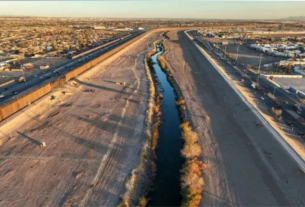North Korea has begun dismantling a facility near the border that was used for reunions of families separated by the Korean War. South Korean officials say the move signals Pyongyang’s unwillingness to resume humanitarian talks. The decision has raised concerns about worsening relations between the two countries.
“This is a painful moment for many families,” a South Korean official said. The facility, located in North Korea’s Mount Kumgang resort, was once a symbol of reconciliation. Its demolition could end hopes for future reunions between aging relatives.
North Korea has not provided an official explanation for the decision. Satellite images confirm that construction equipment and workers are actively tearing down the site. The move follows years of tension and a lack of engagement between North and South Korea.
Family reunions have been rare since the Korean War ended in 1953. The two Koreas have organized meetings on several occasions, but Pyongyang has blocked further events in recent years. Many families have died without seeing their loved ones again.
South Korea has called on North Korea to stop the demolition. Officials argue that the facility should remain available for future reunions. The government is urging international organizations to intervene and pressure Pyongyang to reconsider.
North Korean media has not reported on the demolition. State-run outlets continue to focus on leader Kim Jong Un’s military policies and economic challenges. The regime has remained silent on South Korea’s appeals for dialogue.
Many experts believe North Korea is eliminating symbols of past cooperation. The facility was built during a period of warmer relations in the early 2000s. Pyongyang may see it as unnecessary under current policies.
“The North’s leadership has no interest in reconciliation right now,” a security analyst said. The regime is more focused on its nuclear program and political stability. Reopening humanitarian talks does not fit its current priorities.
The destruction of the site is another setback for South Korean President Yoon Suk Yeol’s approach to North Korea. His government has pushed for stronger defense measures while leaving the door open for dialogue. Pyongyang has ignored diplomatic outreach and increased military activity.
North Korea has also cracked down on outside influences within its borders. Reports indicate that citizens caught consuming South Korean media face harsh punishments. The regime is isolating itself further from external engagement.
China and Russia have strengthened ties with North Korea in recent months. Both nations oppose additional sanctions on Pyongyang despite its missile tests. This support allows North Korea to resist diplomatic pressure from South Korea and the West.
The United Nations has previously urged North Korea to allow more humanitarian programs. Officials have called for the resumption of family reunions, but Pyongyang has not responded. The latest developments suggest the situation is unlikely to improve soon.
South Korean families affected by the division have expressed sadness and frustration. Many have waited decades for another chance to meet their loved ones. The facility’s destruction may mean they never get that opportunity.
Activists in South Korea have condemned North Korea’s actions. Some have called for stronger pressure on Pyongyang to respect human rights. Others argue that Seoul should find alternative ways to connect separated families.
The dismantling of the facility may also signal broader changes in North Korean policy. Kim Jong Un has focused on strengthening ties with adversaries of the U.S. rather than engaging with Seoul. This shift reduces the chances of cooperation on humanitarian issues.
North Korea has also been increasing its border security. Reports suggest the government is reinforcing barriers to prevent defections. This further limits opportunities for cross-border exchanges.
South Korean officials are discussing their next steps. They may seek help from the U.S. and international agencies to push for renewed talks. However, there are few signs that North Korea is willing to negotiate.
For now, the future of inter-Korean relations remains uncertain. The dismantling of the reunion facility symbolizes a deeper divide between the two nations. Families hoping for another chance to reunite face an increasingly bleak reality.




